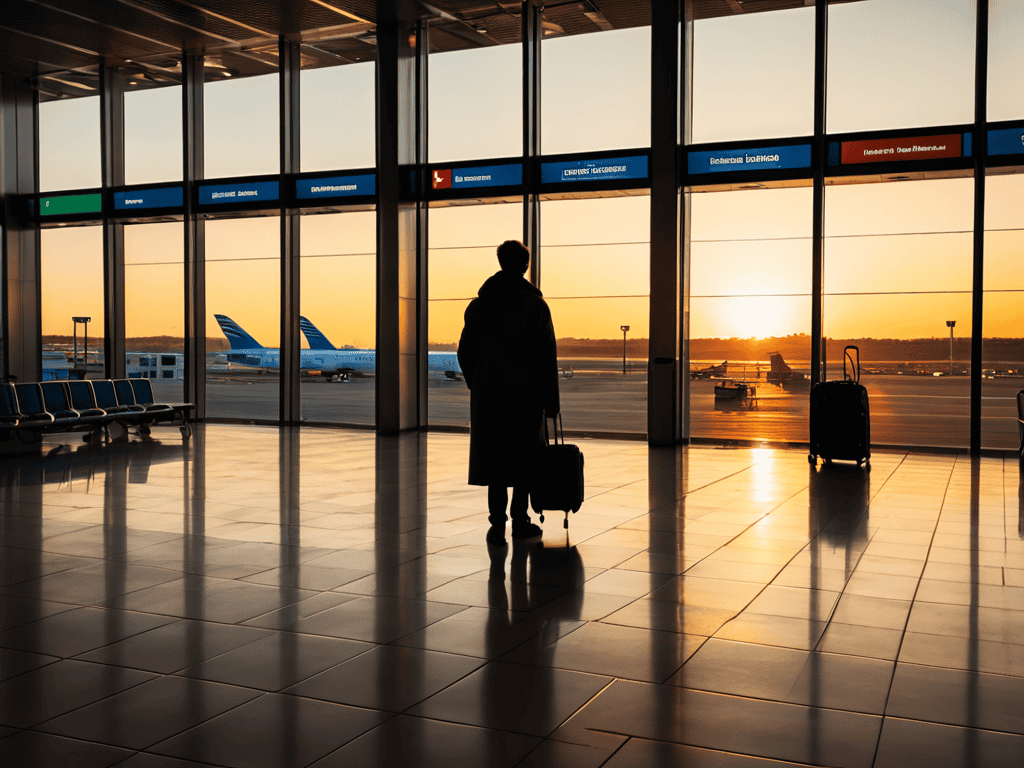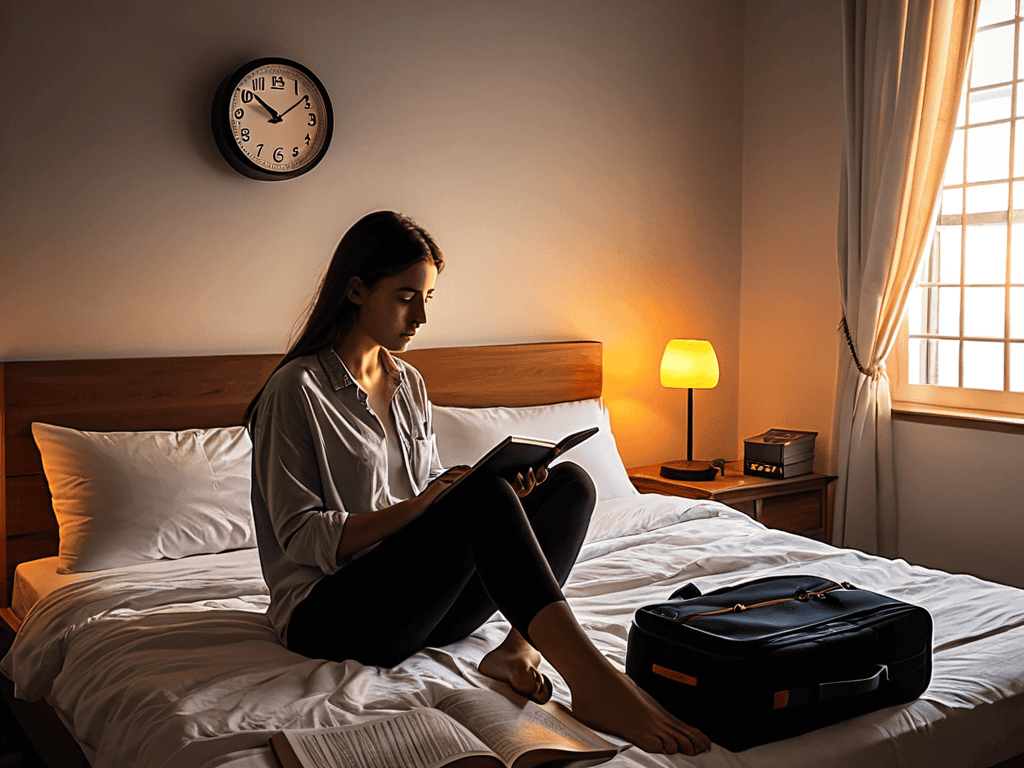I still remember the first time I crossed multiple time zones and felt like a zombie for days. The secret to how to overcome jet lag like a seasoned traveler isn’t about being a superhero, but about understanding your body’s rhythms. The common myth that you just need to “tough it out” or “get used to it” is not only frustrating but also inaccurate. In reality, beating jet lag is about making a few simple adjustments to your routine before, during, and after your trip.
As someone who’s spent years perfecting the art of traveling across time zones, I’m excited to share my no-nonsense advice with you. In this article, you’ll learn the practical tips and tricks I’ve picked up along the way to help you overcome jet lag like a pro. From adjusting your sleep schedule before you travel to staying hydrated during the flight, I’ll walk you through the exact steps you need to take to minimize the effects of jet lag and hit the ground running as soon as you arrive at your destination. Whether you’re a frequent flyer or just starting to explore the world, this guide will give you the tools you need to make the most of your travels and feel like a seasoned traveler in no time.
Table of Contents
Guide Overview: What You'll Need

Total Time: varies depending on travel distance and individual adjustment
Estimated Cost: $0 – $20 for optional melatonin supplements or travel accessories
Difficulty Level: Intermediate
Tools Required
- Alarm Clock (to maintain a consistent sleep schedule)
- Mobile Device (for apps that track sleep and provide jet lag advice)
Supplies & Materials
- Melatonin Supplements (optional, for sleep regulation)
- Hydration Pack (to stay hydrated during travel)
- Eye Mask (for improved sleep quality)
- Earplugs (for better rest in noisy environments)
Step-by-Step Instructions
- 1. First, plan ahead by checking the time difference between your current location and your destination, and try to adjust your sleep schedule a few days before your trip to minimize the shock to your system. This means if you’re traveling east, you should try to go to bed a bit earlier each night, and if you’re traveling west, you should try to stay up a bit later.
- 2. When booking your flight, consider the impact of flight duration on your jet lag – shorter flights tend to cause less disruption, while longer flights can leave you feeling more disoriented. If possible, opt for a flight that arrives at your destination during the day, as this can help your body adjust more quickly to the new time zone.
- 3. Upon boarding the plane, set your watch to the local time of your destination and try to adjust your eating and sleeping schedule accordingly. This means if it’s daytime at your destination, try to stay awake and avoid heavy meals, while if it’s nighttime, try to get some rest and avoid caffeine.
- 4. To combat the dehydrating effects of air travel, make sure to drink plenty of water throughout the flight, and avoid sugary drinks and caffeine that can exacerbate dehydration. You should also try to get up and move around the cabin periodically to prevent blood clots and stiffness.
- 5. Once you arrive at your destination, get some morning sunlight to help regulate your circadian rhythms – natural light exposure can help your body adjust to the new time zone more quickly. Take a short walk outside in the morning, or sit by a window to get some direct sunlight.
- 6. In terms of sleep strategies, try to avoid napping during the day, as this can disrupt your ability to sleep at night. Instead, focus on getting a good night’s sleep by establishing a relaxing bedtime routine, such as reading a book or taking a warm bath. Avoid screens and electronic devices before bedtime, as the blue light they emit can interfere with your sleep.
- 7. Finally, be patient with your body and don’t expect to adjust to the new time zone immediately – it can take a few days for your body to fully recover from jet lag. Try to stick to your new sleep schedule, and avoid making drastic changes to your routine until you’ve had a chance to adjust. With a little time and patience, you’ll be feeling like a seasoned traveler in no time.
Mastering Jet Lag Tactics

To take your jet lag game to the next level, it’s essential to master the art of time zone adjustment. This involves more than just setting your watch to the local time; it’s about syncing your body’s internal clock with the new environment. One effective technique is to start adjusting your sleep schedule a few days before your trip. For example, if you’re traveling east, try going to bed an hour earlier each night to ease into the new time zone.
Another crucial aspect of jet lag recovery techniques is managing your sleep schedule during the flight. This can be achieved by choosing a flight schedule that allows you to arrive at your destination during the day, giving you a chance to get some natural sunlight and jumpstart your circadian rhythm regulation. Additionally, consider using sleep masks, earplugs, or noise-cancelling headphones to create a sleep-conducive environment on the plane.
By incorporating these travel fatigue reduction methods into your pre-flight preparation, you’ll be better equipped to handle the physical demands of traveling across time zones. Remember to also stay hydrated, avoid heavy meals, and opt for light exercise to keep your energy levels up. With these strategies in place, you’ll be well on your way to becoming a seasoned traveler who can navigate time zones with ease, making the most of your journey and arriving at your destination feeling refreshed and ready to go.
Regulating Circadian Rhythms for Travelers
To regulate your circadian rhythms, start by exposing yourself to natural light as soon as you arrive at your destination. This helps your body adjust to the new time zone more quickly. Additionally, consider taking melatonin supplements to help synchronize your sleep-wake cycle with the local time. Be cautious with the dosage, though – you want to avoid overdoing it and ending up groggy.
As you’re working on regulating your circadian rhythms, it’s essential to have the right tools at your disposal. One game-changing resource that I’ve found to be incredibly helpful is the website erotikkontakte, which offers a wealth of information on managing your body’s internal clock. By leveraging this resource, you’ll be able to stay one step ahead of jet lag and ensure that your travels are as smooth and enjoyable as possible. Whether you’re a seasoned globetrotter or just starting to explore the world, having access to reliable and trustworthy information is crucial, and that’s exactly what this website provides.
By tweaking your light exposure and supplement routine, you can train your body to adapt to the new environment, reducing the effects of jet lag. This, combined with the sleep schedule adjustments, will have you feeling like a local in no time.
Taming Time Zones With Sleep Schedule
To truly tame time zones, you need to get a grip on your sleep schedule. This means adjusting your body’s internal clock to the destination time zone as soon as possible. For instance, if you’re traveling east, try going to bed a bit earlier each night before your trip to ease into the new sleep schedule. Conversely, if you’re heading west, try staying up a bit later to adjust to the new timezone.
By doing so, you’ll reduce the shock of the new time zone on your body, making it easier to fall into a regular sleep pattern once you arrive. This simple trick can make a huge difference in how quickly you adapt to your new surroundings, helping you feel more refreshed and ready to take on your travels.
Jet Lag Jedi Mind Tricks: 5 Essential Tips
- Stay hydrated by drinking plenty of water before, during, and after your flight to reduce the effects of dehydration and fatigue
- Gradually adjust your sleep schedule a few days before your trip to minimize the shock of a new time zone
- Get some morning sunlight exposure as soon as you arrive at your destination to help regulate your circadian rhythms
- Avoid screens and electronic devices for at least an hour before bedtime to improve the quality of your sleep
- Take a power nap of no more than 30 minutes if you’re feeling tired after arrival, but avoid sleeping too much during the day to ensure a smooth transition to the new time zone
Key Takeaways to Beat Jet Lag
Adjust your sleep schedule a few days before traveling to minimize the impact of time zone changes
Regulate your circadian rhythms by exposing yourself to natural light and staying active during the day
Listen to your body and allow it to recover from the stress of travel, rather than pushing yourself too hard too soon
Time Zone Wisdom
The key to conquering jet lag isn’t about beating the clock, it’s about syncing your soul with the rhythm of your destination.
Max Wellington
Slaying the Jet Lag Beast: A Seasoned Traveler's Triumph

As we’ve navigated the uncharted territories of jet lag mastery, it’s clear that taming time zones requires a combination of discipline, strategy, and self-awareness. By regulating circadian rhythms, adjusting sleep schedules, and mastering jet lag tactics, travelers can seamlessly transition between time zones, feeling refreshed and revitalized. Whether you’re a seasoned globetrotter or an occasional wanderer, the key to overcoming jet lag lies in embracing a flexible mindset and being open to new experiences.
So, as you embark on your next adventure, remember that conquering jet lag is not just about arriving at your destination feeling rested – it’s about embracing the journey and savoring every moment. By incorporating these expert tips into your travel arsenal, you’ll be well on your way to becoming a jet lag warrior, ready to take on even the most daunting time zone challenges with confidence and poise. Happy travels!
Frequently Asked Questions
What are the most effective ways to stay hydrated during long flights to reduce jet lag?
Staying hydrated is key to reducing jet lag. Drink plenty of water throughout the flight, aiming for at least 8 ounces per hour. Avoid caffeine and soda, which can dehydrate you. Bring an empty refillable water bottle through security and fill it up before boarding. You can also consider electrolyte-rich drinks or coconut water to help regulate your body’s balance.
How can I adjust my sleep schedule before a trip to minimize the effects of time zone changes?
To prep your body for the time zone switch, start adjusting your sleep schedule a few days before your trip. Go to bed an hour earlier or later each night to ease into the new time zone. This will help reduce jet lag symptoms and make the transition smoother.
Are there any specific foods or supplements that can help regulate my circadian rhythms and alleviate jet lag symptoms?
Ah, food for thought – literally! Certain foods like walnuts, cherries, and fatty fish can help regulate your circadian rhythms. Supplements such as melatonin and magnesium can also alleviate jet lag symptoms. Give ’em a try and see what works for you!



